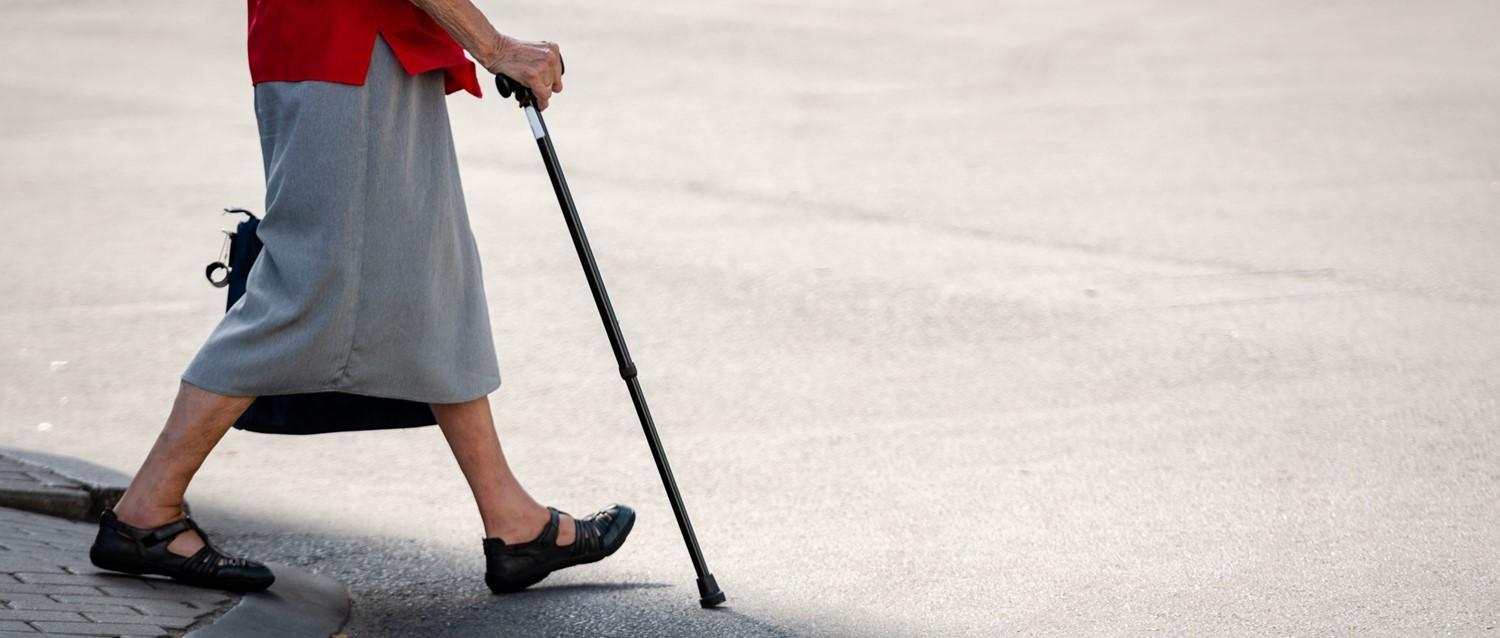
Verpassen ältere Erwachsene etwas, wenn es um die digitale Gesundheitsversorgung geht?
Peer reviewed by Dr Sarah Jarvis MBE, FRCGPAuthored by Milly EvansOriginally published 27 Jan 2021
Erfüllt die Anforderungen des Patienten redaktionelle Richtlinien
- HerunterladenHerunterladen
- Teilen Sie
- Sprache
- Diskussion
Dank des technologischen Fortschritts sind Gesundheitsdienstleistungen heute leichter zugänglich als je zuvor. Der NHS hat sich dazu verpflichtet, die digitale Pflege zum Standard zu machen. Und während der COVID-19-Pandemie sind mehr Dienste online gegangen als je zuvor. Aber werden ältere Menschen, die sich im Umgang mit dem Internet nicht sicher fühlen, abgehängt?
In diesem Artikel:
Lesen Sie unten weiter
Mixed interest
Whilst older people are increasingly using the internet and owning smartphones, many still avoid online life completely or use it only on occasion. According to Ofcom, just under one in five over-75s personally use a smartphone, although they are more likely to use larger devices like tablets or computers as their main gateway to the internet. Their research showed that among older people, people with disabilities, women and those from lower socio-economic backgrounds were even less likely to use the internet.
13% of adults do not use the internet, a figure which has remained stable since 2014. This rises to 30% of 65-74 year olds and 51% of over 75s. Despite this, there has been progress in the last five years in getting older people online, with the number of people aged 75+ who have used the internet in the last three months doubling.
"Increasing internet use amongst older people has been a decade-long trend and it's a good thing, since being online can help people access information, public services and cheap deals," says Caroline Abrahams, charity director at Age UK. "However, a substantial group - including the majority of those aged 75 and over - are not online and most of them never will be. Over 79% of all digital exclusion is amongst those aged 65 plus."
Abrahams points out that there are many reasons for this including lack of knowledge, cost and security concerns which prevent internet access for some older people. But shunning the web isn't a negative thing for everyone. "They have lived life quite happily without computers for many years so why should they start now?" she explains.
'I'm just too old'
A study by Lancaster University into internet use in older people found that there are various reasons why older people don't use the internet as frequently as their younger counterparts. For many, a lack of confidence in their own ability to use technology raised fears about security, particularly with online banking.
Ofcom found that older internet users are likely to carry out a narrower range of activities online than the rest of the population, with only 29% of people aged 65+ using the internet for transactions, versus 50% of the general population. Older people were also less likely to use social media, entertainment, communication and browsing tools.
Online shopping raised issues in the Lancaster University study around social isolation and social responsibility, with trips into town being one of a handful of social interactions a lonely older person may have and online shopping threatening the performance of the high street. The study also found that many older people use their age as justification not to use the internet, rather than voicing concerns about cyberbullying and a lack of confidence.
However, the Office for National Statistics also found that 61% of people aged over 65 who didn't use the internet chose not to have access to the internet because they didn't need it, in some cases because it was not deemed useful or interesting to them.
Lesen Sie unten weiter
Health impacts
One of the biggest concerns about an offline older generation is the likelihood that they will miss out on big developments in health accessibility, especially as many useful NHS services move online.
Madeleine Starr MBE, director of business development and innovation at Carers UK, highlights the fact that many are missing out on useful tools to support care.
"Though many of us use technology in our everyday lives, seven out of ten people don't yet think of technology when it comes to caring. So, many are not yet realising the benefits of this technology. Accessing appointments, ordering prescriptions or having consultations online can all help reduce visits to clinicians and unplanned hospital visits which in turn save time spent by unpaid carers away from work or other family responsibilities."
Health information is becoming more readily accessible, with advice and guidance written by professionals just a click away. Missing out on this crucial information and awareness about important health developments and symptoms to look out for could prevent older people from taking their health into their own hands and being proactive.
Starr agrees: "Advice from specialist websites or symptom checkers are great for those who are unsure if their symptoms are cause for concern or find it difficult to get to a doctor's appointment. They can also take some of the worry out of caring."
Technology is making it easier to offer remote care and support for older people, helping them to remain independent. Wearable devices like watches and sensors are able to track and alert the wearer, or in some cases the emergency services, of heart rate, arrhythmias, lack of exercise and hard falls.
"In an ageing society where more of us are providing care for family or friends, technology can make a huge amount of difference to older people requiring a bit of extra support and those caring for them," expains Starr.
Social isolation and loneliness are a growing issue in the health of older people, particularly during the COVID-19 pandemic when our social lives can't carry on as normal. Technology could help alleviate some of this concern. Users of smartphones have access to social media, messaging, calls and video chats, allowing them to stay in touch with friends and family across the world. In the more distant future, early studies have shown that the development of companion and assistive robots can improve cognitive function, lower blood pressure and improve well-being.
Risiken
There is, as there is with any new technology, the risk that we could worsen the health and well-being of older people and even increase social isolation through increased independence, if these changes aren't implemented carefully. But there is a definite possibility that new technology could save the NHS millions in the costs of care for older adults and reduce the emotional costs of care for both patients and their relatives.
However, Abrahams emphasises that services need to remain accessible to those who aren't online. "While it's fine to encourage and support older people to get online, those who choose not to or who cannot do so, for whatever reason, should not be treated like second-class citizens. They must still be able to access services and resources in other ways that suit them."
Patient picks for General health

Gesundheit für Senioren
Weihnachten mit einer chronischen Krankheit bewältigen
Obwohl Weihnachten wirklich "die schönste Zeit des Jahres" sein kann, sind die Festtage nicht für jeden ein Grund zur Freude. Wenn Sie mit einer chronischen Krankheit leben, ist es verständlich, wenn Sie Weihnachten als stressig oder angstauslösend empfinden. Es ist jedoch möglich, die Festtage zu genießen und gleichzeitig seine Krankheit in den Griff zu bekommen.
von Emily Jane Bashforth

Gesundheit für Senioren
Kann Physiotherapie Stürze bei älteren Menschen verhindern?
Ältere Menschen haben ein höheres Risiko, zu stürzen, aber es gibt viele Möglichkeiten, das Risiko eines Sturzes zu verringern. Physiotherapie kann helfen, Kraft, Gleichgewicht und Flexibilität zu verbessern, um Ausrutschen und Stürzen vorzubeugen.
von Natalie Healey
Lesen Sie unten weiter
Artikel Geschichte
Die Informationen auf dieser Seite wurden von qualifizierten Klinikern geprüft.
27 Jan 2021 | Ursprünglich veröffentlicht
Verfasst von:
Milly EvansPeer-Review durch
Dr. Sarah Jarvis MBE, FRCGP

Fragen, teilen, verbinden.
Stöbern Sie in Diskussionen, stellen Sie Fragen, und tauschen Sie Erfahrungen zu Hunderten von Gesundheitsthemen aus.

Fühlen Sie sich unwohl?
Beurteilen Sie Ihre Symptome online und kostenlos
Melden Sie sich für den Patienten-Newsletter an
Ihre wöchentliche Dosis klarer, vertrauenswürdiger Gesundheitsratschläge – geschrieben, damit Sie sich informiert, sicher und unter Kontrolle fühlen.
Mit Ihrer Anmeldung akzeptieren Sie unsere Datenschutzerklärung. Sie können sich jederzeit abmelden. Wir verkaufen Ihre Daten niemals weiter.